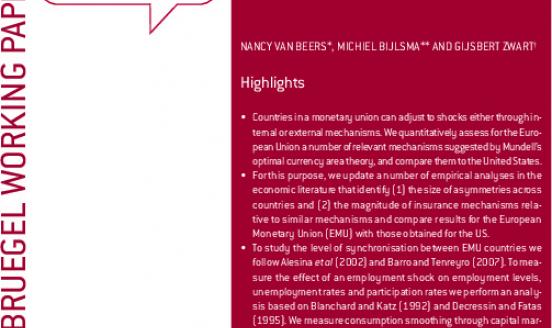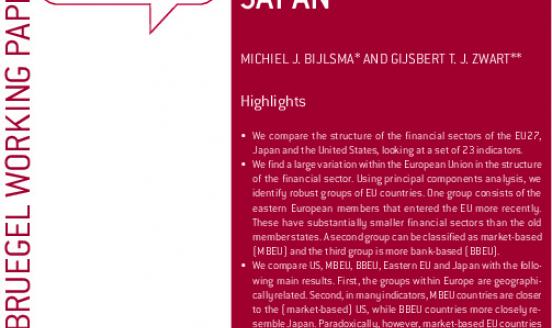The financial transaction tax: please consider the alternatives.
Last Tuesday the European ministers of finance asked the Danish presidency to consider alternatives to the financial transaction tax (FTT). The compr
Last Tuesday the European ministers of finance asked the Danish presidency to consider alternatives to the financial transaction tax (FTT). The compromise Europe may be heading for might be a stamp duty along the lines of the current UK stamp duty. This taxes only share trading (presumably at a higher rate) and no other spot and derivatives trading Indeed, the example of the UK stamp duty, at a rate of 0.5%, shows that collection of such a tax can be very cost efficient, while the revenue has remained fairly stable over the years.
However, three crucial points still remain: will a tax increase stability in the financial sector, does it distort investment decision in the real economy, and do better alternatives exist? The commission has done an admirable job in its impact assessment of the FTT. It rightly concludes that the tax is not directly aimed at correcting the underlying causes of the financial crisis; it would not have prevented the 2007-2008 financial crisis. Nevertheless, a tax may still reduce volatility in financial markets, which some interpret as increasing stability. A survey of the empirical and theoretical literature shows, however, that a financial transaction tax can either increase or reduce volatility. A best guess is therefore that it will not affect volatility. The same goes for a stamp duty.
Then there is the question of the macroeconomic costs, where the core driver is the effect of an FTT on firms’ cost of capital. Estimating this effect is difficult because it involves a multitude of parameters. In its initial assessment, the commission concluded that the tax would reduce GDP by 0.5 to 1.8 percent. A back-of-the-envelope calculation yields comparable results. In an update to their initial assessment the commission has revised their initial estimate downward to 0.2 to 0.3 percent. Restriction to a stamp duty on shares will lead to further downward adjustment of these figures. The lesson to be learnt here is not that these costs will be small, but that they are subject to considerable uncertainty.
This leaves the issue of alternatives options for taxation, which the Danish presidency has been asked to look into. A transaction tax by its nature taxes intermediate transactions, which distorts production decisions. Taxing final products would be more efficient. The Danish presidency’s assessment should therefore look into some form of a Financial Activities Tax as well as abolishing the current VAT-exemption of many financial services.
A FAT, as proposed by the IMF, aims to tax financial sector revenue plus wages as a proxy for added value. It could raise significant revenue and be better targeted at reducing systemic risk in the financial sector. The VAT-exemption is often justified on the grounds that many financial services are margin priced and therefore value added is hard to measure. Whether this is a valid argument is subject to debate. Both alternatives have their drawbacks as well, but a serious effort to compare their merits relative to a transaction tax should be made.

